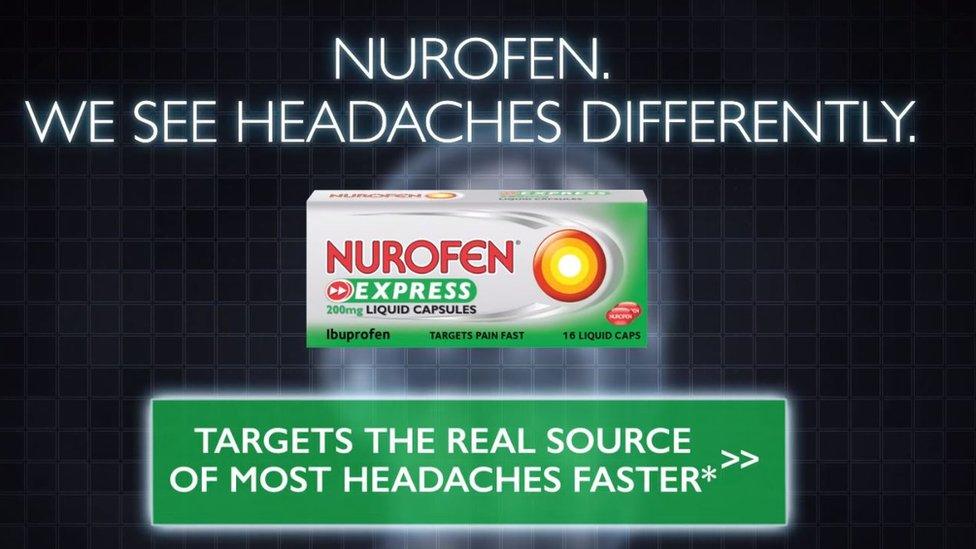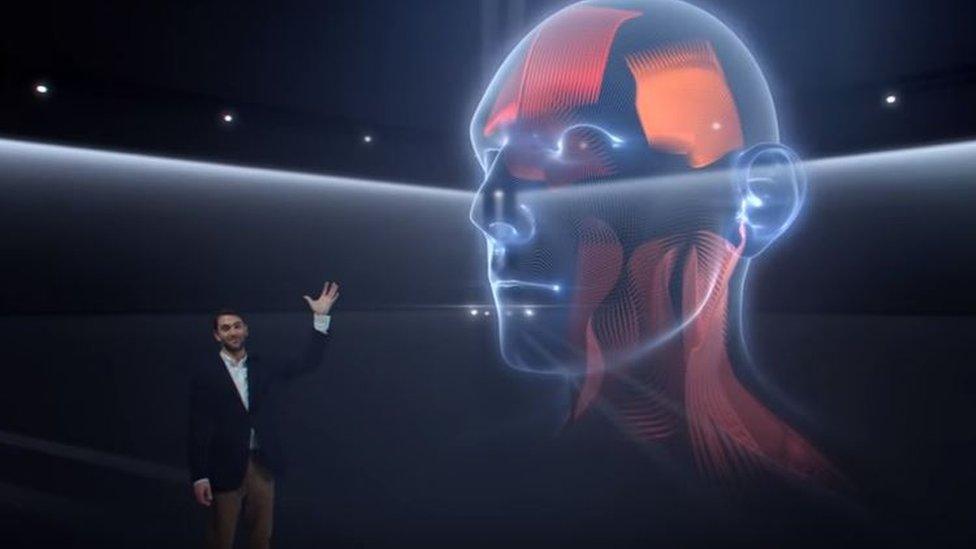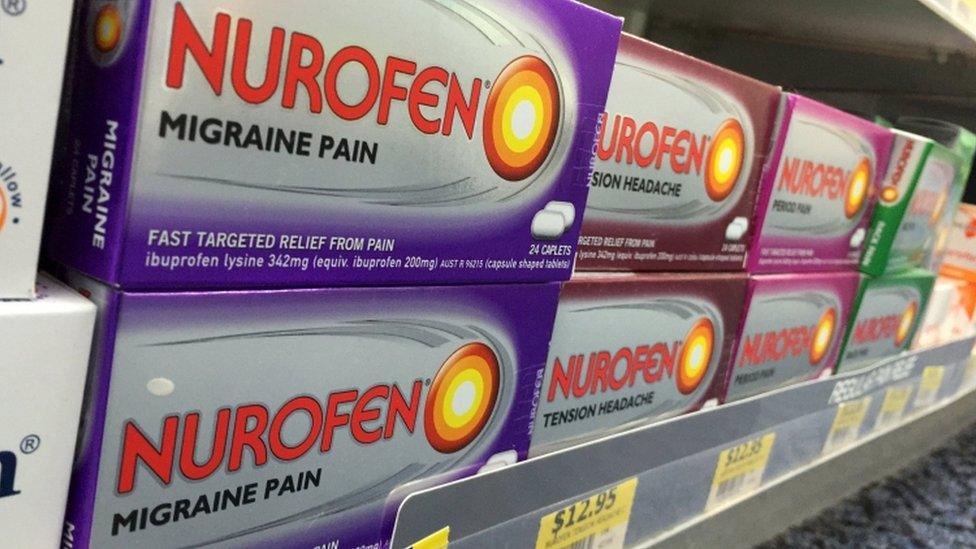Nurofen Express advertising claims probed by UK watchdog
- Published

The UK's advertising watchdog is probing the marketing of Nurofen Express, after receiving complaints about its television advert.
The Advertising Standards Authority (ASA) is examining if the advert is misleading by claiming it targets the source of headaches.
On Monday, Nurofen's maker Reckitt Benckiser defended their packaging, after an Australian court ordered certain products off shelves.
The court said it had misled consumers.
Australia's court said Nurofen's products marketed to treat specific pains, such as migraine, were identical to one another, and said that products must be taken off Australian shelves within three months.
On Monday, Nurofen defended itself by saying that the products had been "designed to help the consumer easily navigate our range", particularly in groceries where there was no pharmacy.
'Misleading'

The Nurofen Express advert, shown in early 2015, received 12 UK complaints.
The advert in question, external claims that "most headaches are caused by strained head muscles", and that the painkiller targets these muscles.
The ASA received 12 complaints about the advert in February and launched its investigation in March.
It said: "Complainants have challenged whether the ad is misleading because it implies that the product directly targets muscles in the head. They've also challenged whether the claim 'gives you faster headache relief than standard paracetamol or ibuprofen' is misleading."
The ASA stressed that it investigates marketing of products, not the product itself.
"The products are regulated by health regulators such as the Medicines & Healthcare products Regulatory Agency (MHRA)," the ASA added.
- Published15 December 2015

- Published14 December 2015

- Published14 December 2015
